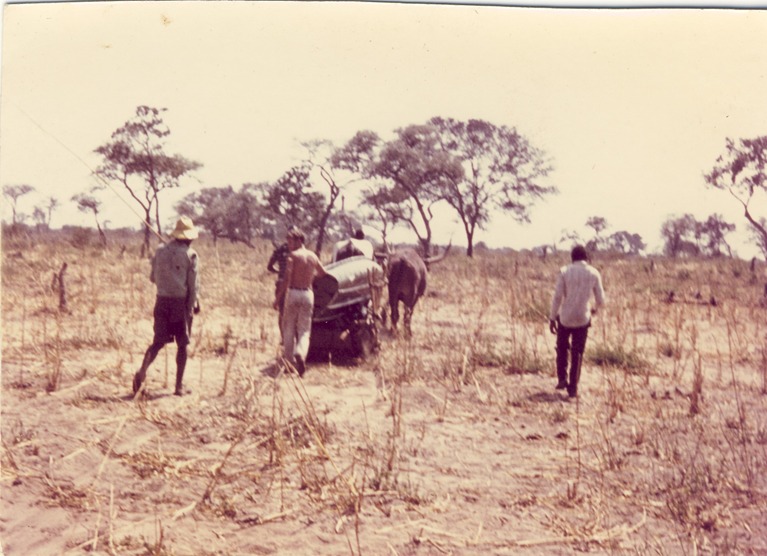Troubled Times
In 1967, deep in the Okavango Panhandle, a crocodile-hunting trip takes an unexpected turn when rumours of war cause panic in a remote village—leading to a comical and unforgettable encounter.
Lloyd Wilmot
8/8/20252 min read
In August 1967, I hunted crocodiles in the remote lagoons along the eastern part of the Okavango Panhandle. Up north, the liberation war in Angola was heating up. Atrocities and reprisals by the Portuguese armed forces were sending trickles of refugees south into Botswana. By the following year, the trickle would become a flood. Rumours spread quickly, and people in rural areas were on edge. Our rifle shots at night while hunting crocodiles often caused frightened villagers to flee into the darkness.
At Sekanduka—Red Cliffs—a small group of women and two old men approached our camp one morning to find out who we were and what we were doing. We reassured them and asked about crocodiles in the hard-to-reach lagoons along the Panhandle’s eastern edge. They said there were many, so I hired a team of oxen to pull a sledge. This would carry our fiberglass canoe and hunting gear to the next lagoons.
The first lagoon we hunted was Nxadau, and it produced four good-sized crocodiles, more than justifying the cost of the oxen. The next morning, while the crocodiles were being skinned, we broke camp. My German friend Sasha and I walked ahead with a 12-bore shotgun while the sledge followed behind. Sasha, with her striking green eyes and bright auburn hair, loved the adventure.
By afternoon, as we neared Xoie, we saw cultivated fields and scattered hamlets. This was a remote backwater of Botswana. Rounding a bend beside a thorn fence, we suddenly came face-to-face with several bullocks. Two young herd boys were riding one of the oxen—a rare sight. The moment they saw us, they leapt off and sprinted across the field toward a woman who was hoeing.
She was a wizened old crone, wearing only a mojamboro— a skin skirt. I don’t know what the boys told her, but she immediately threw down her hoe, grabbed them—one under each arm—and bolted for the tree line, her shrivelled breasts flapping as she ran.
We were possibly the first white people they had ever seen, or perhaps rumours of white soldiers killing people had reached this far.


